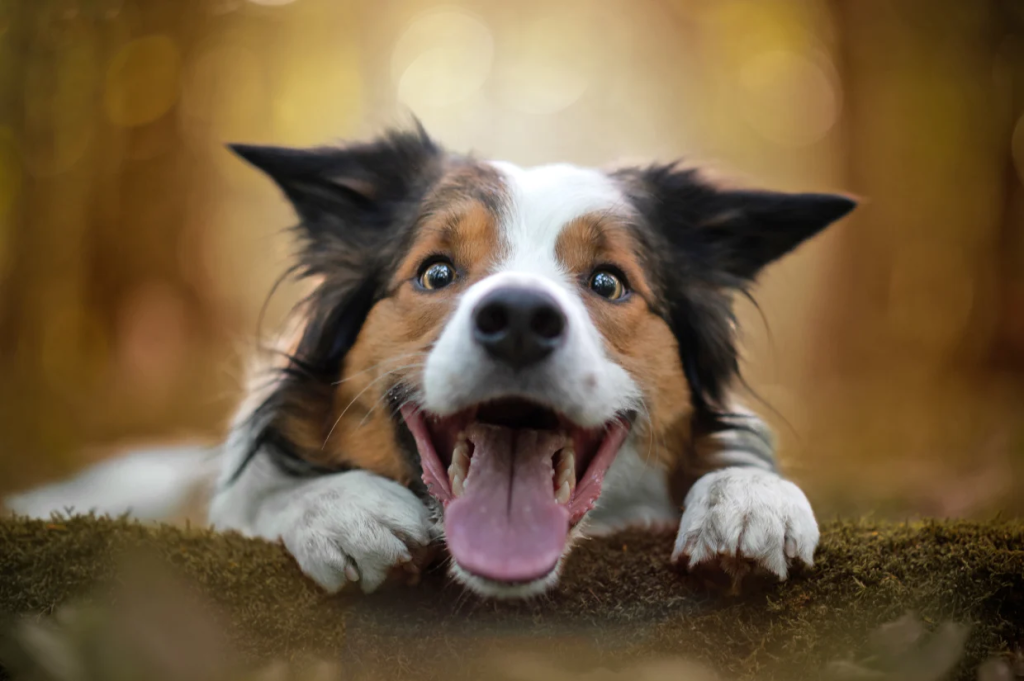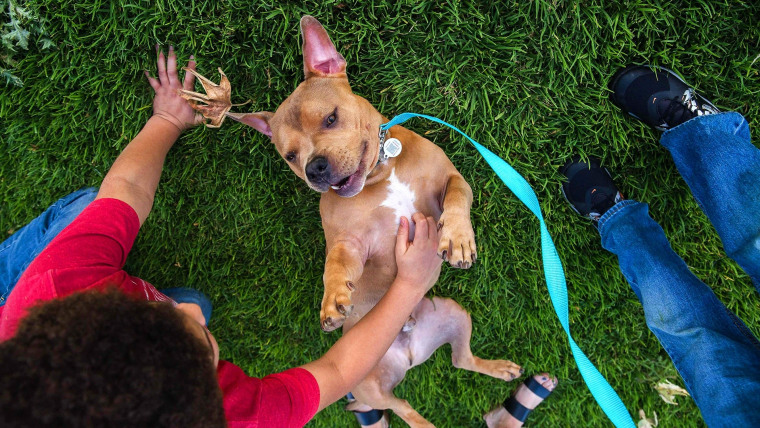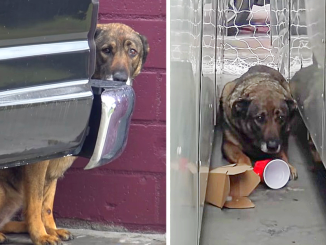Canine eggheads enjoy playing with toys and retrieving objects.

“Gifted” dogs, who have a rare talent for learning lots of words for objects easily, also turn out to be more playful than other dogs, a new study finds.
Prior research in humans has shown a link between playfulness and problem-solving abilities, so animal behavior researchers from Eötvös Loránd University in Budapest, Hungary, wondered if the same was true for rollicking pups.
What is a gifted dog? In the new study, it was Border collies who had proven in prior research that they were able to learn as many as 12 new words per week and then retain them for months.
To take a closer look at the possible association between giftedness and playfulness in dogs, Claudia Fugazza, a researcher in the university’s department of ethology (the study of animal behavior), and her colleagues asked the owners of 165 Border collies to fill out dog personality questionnaires. Twenty-one of the dogs were gifted and the other 114 were just randomly selected with no testing for word learning ability.
The surveys assessed the personality of the animals in five categories:
- Fearfulness, including fear of people, nonsocial fear, fear of dogs, fear of handling.
- Aggression toward people, including general aggression and aggression in certain situations.
- Activity/Excitability, including excitability, playfulness, active engagement and companionability.
- Responsiveness, such as trainability and controllability.
- Aggression toward animals, including aggression toward dogs, prey drive and dominance over other dogs.
For the evaluation of playfulness the owners were asked to rate their dogs in three areas:
- Dog gets bored in play quickly.
- Dog enjoys playing with toys.
- Dog retrieves objects, such as balls, toys and sticks.
The researchers focused solely on Border collies because earlier experiments found that the breed is more likely to be good at learning new words compared to others.
After collecting the survey responses, the researchers then compared the responses from owners of gifted dogs to those from the owners of dogs who had not been identified as gifted.
Playfulness was the only personality trait that was consistently different between the two groups.
It’s not clear from the study whether it’s the playfulness that helps the dogs learn more words, or whether the extra playful ones ended up with more opportunities to learn, said Fugazza, the study’s lead author, said in an email. That’s because gifted dogs tend to learn words for objects when their owners are playing with them.
Are playful dogs smarter?
Not exactly.
“Intelligence is the result of diverse cognitive traits that allow individuals to flexibly solve different types of problems,” Fugazza explained. “Giftedness refers to an extremely good capacity in the case of a specific skill.”
So, maybe gifted dogs are like people who score high on the verbal part of the SATs.
If your pup doesn’t learn words easily, it doesn’t mean it’s a dumb dog. Adam Boyko, an expert in canine genomics, reassures owners that canine intelligence is more than that.
“Both dogs and wolves are playful when they are puppies, but dogs really evolved to living in the human environment and to responding to social cues,” said Boyko, a specialist in the genetics of behavior and an associate professor at the Cornell University College of Veterinary Medicine. “It’s not surprising that the more playful ones exhibit better learning in the domain of learning human words. And it’s not surprising that Border collies, who are bred to respond to human cues, show the propensity to learn words more than other breeds.”

Other breeds of dogs might show intelligence in other ways, Boyko said. For example, wolves are very intelligent although they don’t typically pick up on human cues.
“But they can figure out how to escape,” said Boyko. “Where dogs would look for a person to help, wolves would see how humans did a latch and lock and then the wolves would do it themselves to get out.”
Boyko would like to take the study a step further and look at the genetics of the gifted dogs.
“This is a tantalizing correlation that might be meaningful if you are trying to build better service dogs,” he said.
One thing that can’t be determined from the study is whether the playfulness trait spurred owners to interact more with their dogs and thus teach them more words, said Dr. Nicholas Dodman, a professor emeritus at the Cummings School of Veterinary Medicine at Tufts University, CEO and president of the Center for Canine Behavior Studies and the author of “Pets on the Couch: Neurotic Dogs, Compulsive Cats, Anxious Birds and the New Science of Animal Psychiatry.”
Dodman said the study is interesting but needs to be replicated in a larger number of dogs.
“I would also like to see it done in a different breed,” he said.
The new findings might help people who want to buy or adopt a puppy. It suggests that playfulness might be a good attribute to consider.
“The playful ones might be more likely to interact with a person, assimilate words more easily and be more intelligent,” said Dodman.
MAN RESCUES POOR ABANDONED PUPPY AND ENRICHES HIM WITH A LOVING FOREVER HOME!
A heartfelt moment, Meets the Person Who Stopped the Pit Bull Puppy’s Death

Even while it might be difficult at times, there are many lovely moments that can only be made possible by the selfless efforts of volunteers.
Joey Wagner, a marine biologist from Nova Scotia in Canada, volunteers at the Baie Ste Marie Animal Society. A pit bull mix dog who had been cruelly mistreated and needed some tender loving care was brought to Joey’s attention in 2013. Joey showed up just as the dog was going to die.
Joey and the rescue crew took the puppy, whose they called Mojo, to Parade Street Vet, PEI Small Animal Hospital for treatment of acute dehydration and demodectic mange. He had totally lost all of his fur and was covered in mite bites by the time he was three months old. As Joey watched, the puppy’s mange was becoming worse as a result of malnutrition and his unhygienic living conditions.

In a Facebook post, Joey said, “When Mojo was surrendered, it was a very short process and a very emotional time.”
As Mojo battled for his life, Joey and his wife Leta fell in love with him. Despite the terrible suffering he had through, Mojo shown a profound ability for compassion and forgiveness. After hearing about his problems, a lot of people asked for his assistance.

As soon as Mojo spotted Joey, his little tail began to wag. Joey writhed his entire body to get closer to his new father, his face covered in kisses. Joey couldn’t help but grin as Mojo thanked him for giving him another opportunity at life.
Joey and Mojo’s joyful reunion has been enjoyed by the globe for more than seven years. Mojo is happy and well-cared for now that he is a member of Joey and Leta’s team. He never entirely grew his fur back, but he doesn’t seem to mind. Since then, the Wagner family has used his tale to inspire others and generate money for animal rescue groups.

The nuanced reaction from Mojo proved that animals possess intellect. Joey had aided Mojo when he was at his most helpless. Their separation is minimal.

Watch the video down below to see Mojo’s sweet response.



Leave a Reply